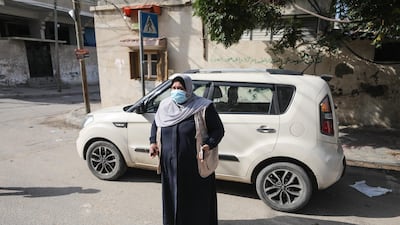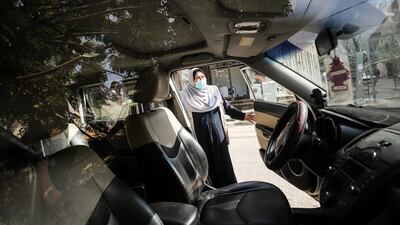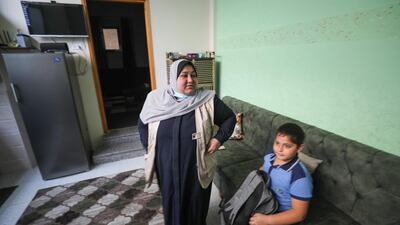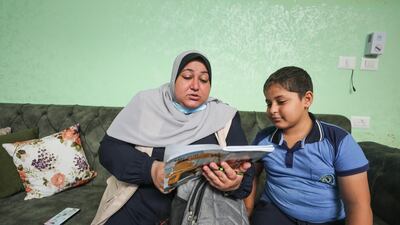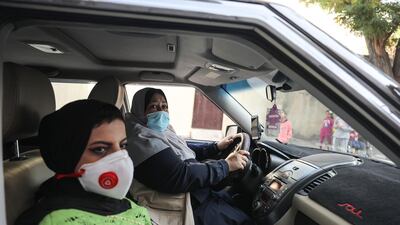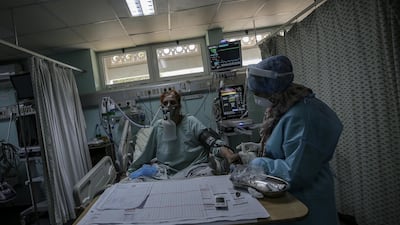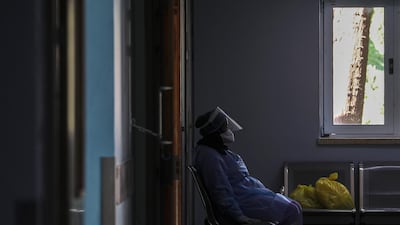Gaza’s first woman taxi driver is breaking barriers despite Covid-19 ravaging the local economy.
Nayla Abu Jubbah, known as Um Mohammed, set up her own taxi firm in the middle of a pandemic. She has been challenging social norms and enduring criticism from friends, family and strangers to create a successful business.
Driving her off-white Kia, bought with money inherited from her father, she picks up passengers around Gaza city.
Um Mohammed has become a fixture in the local community in the two short months her business has been running.
Fellow taxi drivers call out the name of her business, Al Mokhtara, as she drives by. Customers book by phone to secure her services, mainly women who want to feel safe on their journeys, Um Mohammed said.
"My project is to protect women," the mother of five told The National, adding she was inspired by a story she had heard about a woman who had fallen out with her husband because he didn't want her to get in a taxi with a strange man.
Al Mokhtara has its fans already.
"As we are a conservative society, women prefer not to be seen by strange men when they are wearing makeup or smart dress on their way to weddings or parties," Hala Aboud, 35 told The National.
Ms Aboud said she is much more comfortable when she is driven by a woman than by a man.
But the project has not been popular with some of Um Mohammed's friends and family. Some have shared her story on social media and criticised her.
"I had some issues with my family now, because they are rejecting my work and have asked me to stop,” she said.
Women are allowed to drive in Gaza. But driving taxis for a living had been, until Um Mohammed launched her business, an exclusively male domain.
Despite the lack of support, she has vowed to carry on, confident of the need for her services in the community.
"I will go back to my family within six months when I own the biggest company in Gaza for women's taxis,” she said.
"I will not stop working or dreaming because as women we can make it".
But Covid-19 is a continuing battle.
Out of its two million people, Gaza has reported more than 22,196 cases and 118 deaths.
Um Mohammed says she keeps her passengers safe by wearing a mask and using an alcohol spray to disinfect her car, but passenger numbers are low.
"The pandemic affects the work, I earn only around 15 ILS (around $4) a day”.
This is not enough to pay for the $6 cost of running her car, let alone pay herself a wage, but she is determined to continue. Besides, the chances of her finding other work are low.
According to the Palestinian Central Bureau of Statistics, unemployment among women climbed to 62.1 per cent in the first quarter of 2020, compared to 57.3 per cent in the last quarter of 2019.
The number of women employed in Gaza dropped by 12 per cent compared to the total number of employed women in Gaza at the end of 2019.
It’s not all about the money for Um Mohammed. It’s about proving a point.
“I didn’t start my project to compete with men, I just wanted to prove that there is nothing exclusive for men”
